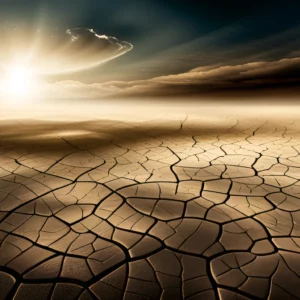
In the annals of human history, few challenges have commanded as much attention and urgency as the escalating crisis of climate change. As the Earth’s climate system becomes increasingly destabilized, the consequences of anthropogenic greenhouse gas emissions are becoming more pronounced, casting a long shadow over the future of our planet and its inhabitants. The relentless combustion of fossil fuels, deforestation, and industrial activities has unleashed an unprecedented surge in greenhouse gas concentrations, disrupting the delicate balance of the Earth’s atmosphere and leading to a steady rise in global temperatures over the past century. This phenomenon, commonly referred to as global warming, serves as a stark reminder of the profound impact of human activities on the natural world.
To comprehend the magnitude of this global predicament, one must delve into the intricate web of scientific evidence, societal impacts, and potential pathways forward. The scientific foundations of climate change are firmly rooted in the principles of atmospheric science, which elucidate the mechanisms driving the Earth’s climate system. At the heart of the issue lies the role of greenhouse gases, such as carbon dioxide, methane, and nitrous oxide, in trapping heat within the Earth’s atmosphere—a phenomenon known as the greenhouse effect. The consequences of this phenomenon are far-reaching, with cascading effects rippling through ecosystems, economies, and societies worldwide. From the melting ice caps of the polar regions to the bleaching coral reefs of tropical seas, the signs of ecological distress are unmistakable, underscoring the urgent need for concerted action to address the root causes of climate change and mitigate its impacts.
The Scientific Foundations of Climate Change
At the heart of the climate crisis lies the fundamental principles of atmospheric science, which illuminate the intricate mechanisms driving the Earth’s climate system. Central to this understanding is the pivotal role played by greenhouse gases, including carbon dioxide, methane, and nitrous oxide, in trapping heat within the Earth’s atmosphere—a phenomenon commonly referred to as the greenhouse effect. These gases act as a thermal blanket, preventing the escape of heat into space and thereby warming the planet’s surface. However, the delicate balance of this natural process has been disrupted by human activities, most notably the relentless combustion of fossil fuels, rampant deforestation, and industrial processes. As a result, there has been an unprecedented surge in greenhouse gas concentrations in the atmosphere, particularly carbon dioxide, which has reached levels not seen in millions of years. This accumulation of greenhouse gases has led to a steady rise in global temperatures over the past century—a trend unequivocally linked to human activities, according to overwhelming scientific consensus.
The consequences of this warming trend are manifold and profound, reverberating across the planet and affecting ecosystems, economies, and societies in diverse ways. From the thawing permafrost of the Arctic to the bleaching coral reefs of the world’s oceans, the impacts of climate change are becoming increasingly apparent and alarming. Rising temperatures are intensifying extreme weather events, such as heatwaves, hurricanes, and wildfires, while alterations in precipitation patterns are leading to floods, droughts, and water scarcity in many regions. These changes pose significant risks to food security, human health, and biodiversity, exacerbating existing vulnerabilities and inequalities. Moreover, the effects of climate change are not confined to distant shores or future generations—they are being felt here and now, with vulnerable communities bearing the brunt of the impacts.
Ecosystems in Peril: The Ecological Ramifications of Climate Change
The repercussions of climate change reverberate throughout the natural world, heralding profound disruptions to ecosystems and biodiversity on an unprecedented scale. From the icy expanses of the polar regions to the vibrant coral reefs of tropical seas, no corner of the planet remains untouched by the specter of ecological upheaval. Rising temperatures, driven by anthropogenic greenhouse gas emissions, are triggering a cascade of impacts that threaten the very fabric of life on Earth.
One of the most visible and alarming consequences of climate change is the rapid deterioration of ecosystems and the loss of biodiversity. As temperatures soar and weather patterns become increasingly erratic, ecosystems are facing unprecedented stress, pushing many species to the brink of extinction. Iconic habitats, such as tropical rainforests, are experiencing heightened rates of deforestation and degradation, while fragile marine ecosystems are reeling from the impacts of ocean acidification and coral bleaching. These disturbances not only jeopardize the survival of individual species but also disrupt intricate ecological interactions, leading to the unraveling of food webs and ecosystem functions.
The plight of vulnerable species is particularly poignant, with many facing an uncertain future in the face of relentless environmental change. From polar bears struggling to find food as sea ice dwindles to amphibians succumbing to disease outbreaks exacerbated by warming temperatures, the toll of climate change on wildlife is both heartbreaking and sobering. Moreover, the loss of biodiversity carries far-reaching consequences for human societies, undermining vital ecosystem services such as pollination, water purification, and carbon sequestration. As species disappear and ecosystems degrade, the resilience of natural systems to withstand future shocks diminishes, heightening the risk of ecological collapse and exacerbating the impacts of climate change on human well-being.
Social and Economic Impacts: The Human Toll of Climate Change
Beyond its ecological toll, climate change exacts a heavy toll on human societies, exacerbating existing vulnerabilities and inequalities. Vulnerable communities, particularly those in low-lying coastal areas, arid regions, and small island states, bear the brunt of climate impacts, facing displacement, food insecurity, and economic upheaval. Extreme weather events, such as hurricanes, floods, and droughts, wreak havoc on infrastructure, livelihoods, and public health systems, straining societal resilience and exacerbating poverty and inequality.
Charting a Course Forward: The Imperative for Action
In the face of these daunting challenges, the imperative for action has never been clearer. We stand at a pivotal moment in history, where bold and transformative measures are required to avert the worst impacts of climate change and safeguard the future of our planet. Transitioning to a low-carbon, sustainable future requires concerted efforts across all sectors of society, encompassing mitigation strategies to curb greenhouse gas emissions and adaptation measures to enhance resilience to climate impacts.
Harnessing Solutions and Innovations: Toward a Sustainable Future
Fortunately, the tools and technologies needed to address climate change are at our disposal, waiting to be harnessed and deployed on a global scale. From renewable energy sources to sustainable land management practices, a myriad of solutions exist to mitigate greenhouse gas emissions and build climate resilience. Investing in clean energy infrastructure, promoting energy efficiency, and fostering international cooperation are essential steps toward achieving a sustainable and equitable future for all.

Empowering Individuals and Communities: The Power of Collective Action
While governments, businesses, and international organizations play pivotal roles in driving systemic change, individual actions and community initiatives also hold immense potential in the fight against climate change. By adopting sustainable lifestyle choices, advocating for policy changes, and supporting grassroots efforts, every individual can contribute to collective efforts to address climate change and build a more resilient future.
Conclusion: A Call to Action
In conclusion, the climate crisis presents humanity with an unprecedented challenge—one that demands courage, innovation, and collective action. As stewards of this planet, we have a moral imperative to confront the realities of climate change with determination and resolve. By embracing the challenge of climate change as a catalyst for positive change, we can forge a path toward a sustainable and resilient future for generations to come.
